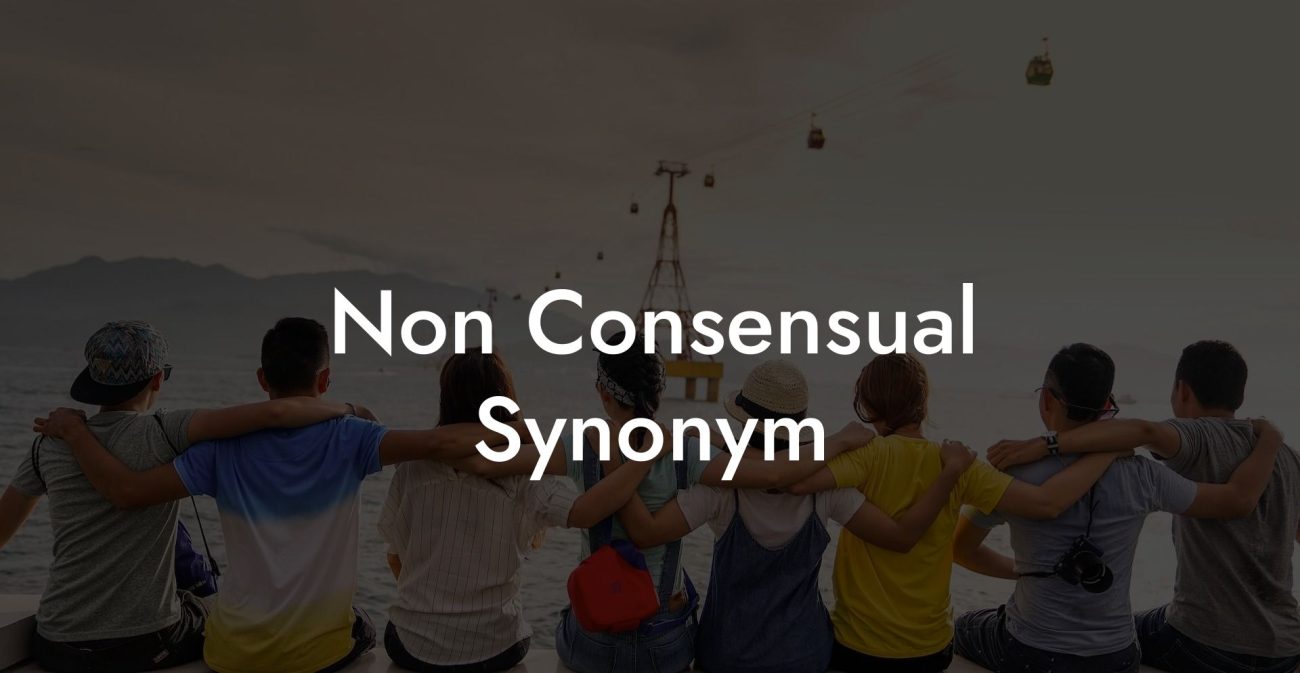In the world of relationships, monogamy and non-monogamy have been the subject of endless debates and discussions for a long time. While many people believe that monogamy is the only acceptable relationship format, it's important to remember that everyone has the freedom to choose the relationship style that suits them the best. With varied perspectives on different types of relationships, "enforced monogamy" has emerged as a controversial term sparking robust viewpoints. Join us here at The Monogamy Experiment as we dive with you into the world of enforced monogamy, its definition, its implications, and its societal impact. Don't forget to stick around for our conclusion and feel free to explore other guides and share your thoughts on The Monogamy Experiment!
Enforced Monogamy Definition Table of Contents
Enforced Monogamy
At its most basic level, enforced monogamy is a concept in which a social or legal structure is put in place to ensure that people adhere to monogamous relationships. In many societies, this may look like a series of rules and customs that consider monogamy as the norm and disapprove of or punish those who pursue non-monogamous relationships. This social norm may extend to laws and regulations that criminalize non-monogamous relationships such as polygamy or adultery.
Enforced Monogamy Controversy
The controversy surrounding enforced monogamy arises from differing opinions on the roles of choice and social pressures in determining relationship styles. While some argue that enforced monogamy promotes stability and social order, others contend that it limits personal freedom and may lead to a variety of negative consequences, especially for those who find non-monogamous relationships more suitable for their lifestyle and needs.
Detractors of enforced monogamy argue that it violates the right to free choice in relationships, as it may lead to individuals feeling trapped in monogamous relationships that do not fulfill their desires or emotional needs. Additionally, it may cause non-monogamous individuals to face ostracism, stigmatization, or even criminal charges if their relationship style deviates from the socially enforced norm.
Supporters of enforced monogamy, on the other hand, contend that it strengthens social bonds, particularly in the context of raising children, building stable households, and preserving traditional values. They argue that monogamy helps maintain societal balance, reduces jealousy and competition, and engenders trust and commitment between partners.
Enforced Monogamy Example
The best way to illustrate the concept of enforced monogamy is examining a society where it is the prevailing norm. In many Western cultures, monogamy is considered the standard relationship format, with legal systems primarily recognizing and providing benefits for monogamous connections like marriage. In these societies, individuals partaking in non-monogamous relationships may experience societal pressure, disapproval, or even legal ramifications (such as in cases of adultery or polygamous marriages).
As our exploration of enforced monogamy comes to an end, it's clear that this concept is one that evokes strong opinions and elicits intense debate. At The Monogamy Experiment, we encourage open discussion and understanding of not only enforced monogamy but also other relationship formats such as non-monogamy and polyamory. Whatever your opinion on enforced monogamy, we hope this exploration has shed light on the myriad implications, pros, and cons associated with this controversial concept.
Are your thoughts in line with the current societal norm, or do you dare to defy the conventional wisdom and explore alternative relationship styles? Either way, we warmly invite you to browse our other guides and share this post with friends and loved ones who may find the topic of enforced monogamy intriguing!













